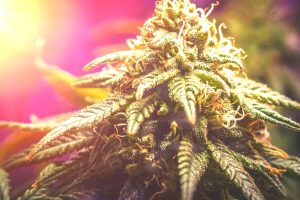California Church Doling Cannabis, Mushrooms as Sacraments Sues Over Drug Raid
A California church that distributes cannabis and psychedelic mushrooms as sacrament has filed a lawsuit against the local city government and police department over a drug raid in which authorities seized more than $200,000 of these substances. 
The civil rights litigation filed by the Zide Door Church of Entheogenic Plants explains that worshippers at the congregation gather and consume the mind-altering plants as a means of having a direct experience with God. The church is interfaith, non-denominational, and openly supports the safe access and use of all entheogenic plants, though its particular focus is on cannabis and so-called “magic mushrooms.”
Approximately 60,000 members of the church pay $5 each month, as well as give donations, in exchange for participation in the sacraments. The church grows its own cannabis and mushrooms. The founder of the church explained to Vice Magazine that consuming these substances allows parishioners to experience spiritual visions, interact with powerful spiritual entities with lessons to teach, and sometimes even engage in a direct experience with God.
But none of that seemed to matter to the Oakland Police when they launched a raid of the facility back in 2020, seizing hundreds of thousands of dollars worth of mushrooms and cannabis. No arrests were made and no charges were filed, but the substances were never returned and the church was not provided any compensation for its value.
As our Los Angeles cannabis lawyers can explain, the actions of police may run afoul of the federal Religious Freedom Restoration Act. This, along with the Religious Land Use and Institutionalized Persons Act, are federal laws that serve as a shield against improper government actions against certain church groups and religious services. It may well provide protections for churches who use religious services.
The RFRA of 1993 bars the federal government from applying/enforcing laws and rules that may burden a person’s exercise of religion – even if the burden results from laws/rules of general applicability. It requires strict scrutiny – the highest level of review – of any federal law that may burden the religious exercises of organizations/groups/individuals.
These laws extend beyond federal government intervention, and assert that local and state government agencies can’t discriminate against religious groups either in areas of zoning and land use restrictions.
It’s our belief at the Cannabis Law Group that churches that treat cannabis as a sacrament are improperly and illegally targeted by government agencies taking action against them for this reason. That said, the law on this front is still unsettled, so it may still be possible for cannabis churches to be shut down, cannabis seized, fines imposed, evictions upheld and criminal charges filed. For those fighting back and taking civil action, it’s imperative to work with a law firm with extensive experience in California cannabis law and a track record of success on behalf of cannabis churches and other organizations.
In the present case, the lawsuit stems from an August 2020 raid, which the police characterized as a crackdown on an illegal dispensary. The church had been listed as one on Weedmaps, an open-source site. There had also been anonymous complaints about the church, alleging it was serving as a de-facto marijuana dispensary.
The church now says that when police raided, the 1st and 14th amendment rights of the church and its congregants were violated. Plaintiffs also say the city’s land use code barring any religious ceremonies and sacraments using cannabis or psychedelics is unconstitutional.
Church leaders note that it does not advertise itself as a dispensary. Its address is not publicly listed on the site, and the specifics of its religious practices aren’t detailed there either. The only way people can learn more about the church’s practices – or even where it is – is through word-of-mouth. They allege an Oakland officer used fraudulent information to apply for church membership, putting forth a fake name and presenting a phony driver’s license. The officer also reportedly signed a membership agreement acknowledging that the church wasn’t operating as a dispensary. When church members purchase small amounts of substances, they are meant to be consumed on-site – not taken off church property for consumption off-site. (The exception is for mushrooms, which are meant to be taken in a place where members would not be driving for at least eight hours after they’ve been consumed.) The church explicitly rejects non-religious use of drugs and alcohol.
The lawsuit also made reference to Resolution 87721, passed by the local city council in 2019, and bars the city (including the police department) from using taxpayer money to enforce laws that criminalize the possession and use of entheogenic plants.
Any church or other religious organization that uses plants or other substances with psychedelic properties should be working closely with a local cannabis attorney to ensure they have all the
The Los Angeles CANNABIS LAW Group represents growers, dispensaries, ancillary companies, patients, doctors and those facing marijuana charges. Call us at 714-937-2050.
Additional Resources:
Church where cannabis and magic mushrooms are ‘sacrament’ claims discrimination in permit fight, Aug. 25, 2022, By Jenna Greene, Reuters
 Cannabis Law Group's Medical Marijuana Legal Blog
Cannabis Law Group's Medical Marijuana Legal Blog




